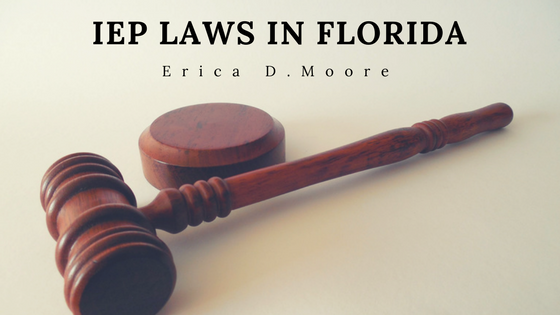
The Individual Educational Plan (IEP) is a requirement for all disabled students who are eligible for Exceptional Student Education (ESE). The IEP is the written plan and process that informs the students, parents, teachers and all other education staff which types of ESE assistances will be provided.
A child is not eligible to receive ESE until the IEP is in place – and until the parents have given permission for the services and placement. The purpose of the IEP is to ensure the needs of each individual child are met. It will detail objectives, how best the student works, how their disability affects their learning process, and helps in choosing placement for the student in the least restrictive education environment.
Eligibility for ESE
Before a student it able to receive ESE and have their IEP program in place, the school is required to determine whether the child’s disability will have a negative effect on their educational development. A full evaluation will be conducted and the school will meet with the parents to analyze and assess if special education services need to be introduced. If this is the case, this is when the IEP team is formed.
IEP Meetings
The first IEP is developed during the initial meeting, with a specific IEP team constructed by the school. For parents in Florida there are a number of important aspects to consider, whether this is the initial meeting or any of the following ones:
- The IEP is unique to their child
- There can only be one IEP running at a time for each child
- If a parents chooses not to attend, the meeting may be held without them
- Parents will receive a copy of the IEP, even if they do not participate
- The IEP details the services the child will receive, and will have a beginning and end date
- If the parent does not agree with the evaluation or recommendation, they have the right to request an Independent Education Evaluation at no cost. Parents can write “not in agreement” by their signature.
- If a school wishes to invite individuals from other organizations outside of the school district, they must gain permission from the parent. The parent may also bring someone if they wish – it is usually recommended to let the school know, but the school may not pressure the parent into coming alone
- When a parent signs the IEP, this does not mean they have given their permission for the program to begin –this is a different form.
- If the parent feels rushed, they may request a continuation meeting. They do not have to sign the IEP there and then.
- The school must gain informed consent from the parent if they believe it best for the child to go into a specialized ESE school, or if the child should not be taking the regular curriculum. If a parent does not consent, then there will be a due process hearing.
Additionally, it should be noted that:
- The IEP must be reviewed and revised at the very least annually
- Parents are an important part of the IEP team, and must be invited to all IEP meetings
- Parents are to be informed how much the budget is for the ESE for their school district at the IEP meeting
- A child may be requested to be exempt from certain examinations
- Parents have the right to have their own professionals collaborate with schools
Further Regulations
Legally, the laws of the IEP are greatly linked to the Individual with Disabilities Education Act (IDEA), which is found in three federal statutes. If there is a conflict between the state of Florida law and federal, federal must be followed.